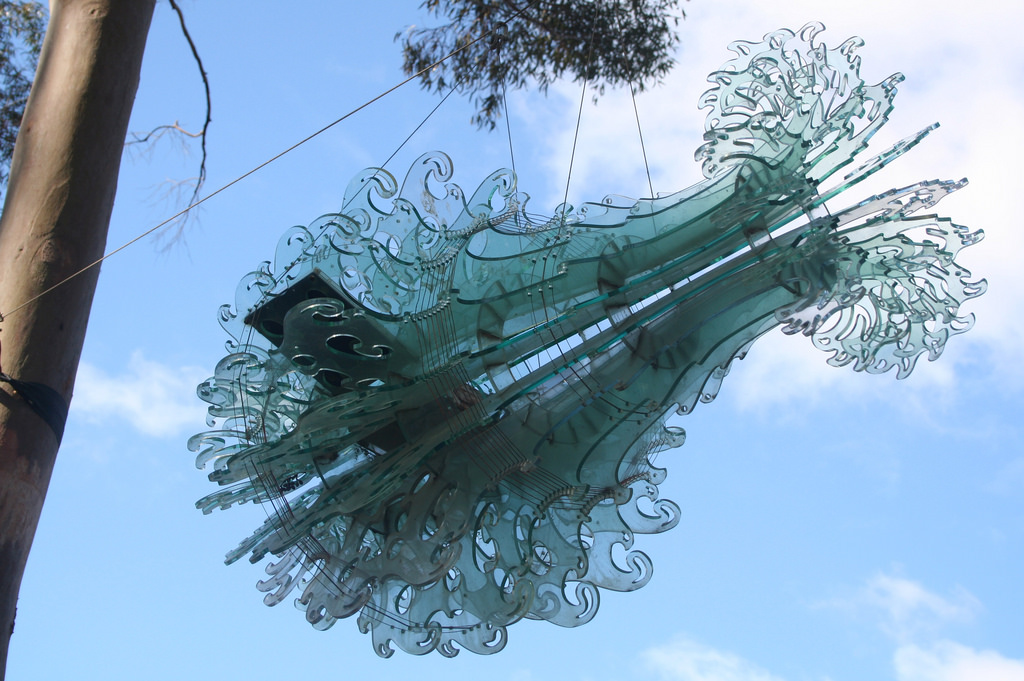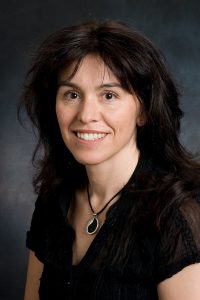 Associate Dean (HDR) Research School of Economics ANU College of Business and Economics.
Associate Dean (HDR) Research School of Economics ANU College of Business and Economics.
Dr. Maria Racionero obtained the First National Prize, awarded by the Spanish Ministry of Education, upon completion of her undergraduate studies. She pursued her doctoral studies at the Universitat Autònoma de Barcelona, within the IDEA program (International Doctorate in Economic Analysis), where she obtained both a Master and a PhD degrees in Economics. From 1997 she benefited from a TMR European Community grant to conduct research at CORE (Université Catholique de Louvain, Belgium). Her main field of research is public economic theory, with particular interest in optimal taxation theory, and her work has been published in refereed international journals (Canadian Journal of Economics, European Economic Review, European Journal of Political Economy, Journal of Public Economic Theory, Oxford Economic Papers and International Tax and Public Finance).
Dr Nigel Helyer
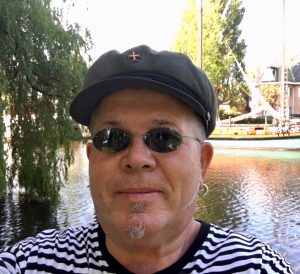 Dr Nigel Helyer (a.k.a. DrSonique) is an independent sculptor and sound-artist – a contemporary polymath whose work links Art and Science, or more accurately Poesis and Teche in a strong embrace of the environment, identity and cultural history. He has forged an international reputation for large scale sound-sculpture installations, environmental public artworks, museum inter-actives and new media projects. http://www.sonicobjects.com
Dr Nigel Helyer (a.k.a. DrSonique) is an independent sculptor and sound-artist – a contemporary polymath whose work links Art and Science, or more accurately Poesis and Teche in a strong embrace of the environment, identity and cultural history. He has forged an international reputation for large scale sound-sculpture installations, environmental public artworks, museum inter-actives and new media projects. http://www.sonicobjects.com
Jessica Kirkness
 Jessica is a PhD candidate and creative writer in the department of ‘Media, Music, Communication and Cultural Studies’ at Macquarie University, Sydney. Her interdisciplinary research straddles the margins of Disability Studies, Deaf Studies, and emerging discourses around creative nonfiction and ethnographic research. Her current research is focused on the nexus of deafness and literature.
Jessica is a PhD candidate and creative writer in the department of ‘Media, Music, Communication and Cultural Studies’ at Macquarie University, Sydney. Her interdisciplinary research straddles the margins of Disability Studies, Deaf Studies, and emerging discourses around creative nonfiction and ethnographic research. Her current research is focused on the nexus of deafness and literature.
Prof Glenn A Albrecht
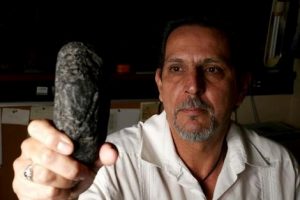 Glenn Albrecht retired as professor of sustainability at Murdoch University in Perth, Western Australia in June 2014. He is now an Honorary Fellow in the School of Geosciences, The University of Sydney. He was at the University of Newcastle as Associate Professor of Environmental Studies until December 2008. He is an environmental philosopher with both theoretical and applied interests in the relationship between ecosystem and human health, broadly defined. He has pioneered the research domain of ‘psychoterratic’ or earth related mental health and emotional conditions with his concept of ‘solastalgia’ or the lived experience of negative environmental change. Solastalgia has become accepted worldwide as a key concept in understanding the impact of environmental change in academic, creative arts, social impact assessment and legal contexts. Glenn Albrecht’s work is now being used extensively in course readings, new research theses and academic research in many disciplines including geography, philosophy and environmental studies. His work is also being published in languages other than English. He has publications in the field of animal ethics and has published on the ethics of relocating endangered species in the face of climate change pressures and the ethics of the thoroughbred horse industry worldwide.
Glenn Albrecht retired as professor of sustainability at Murdoch University in Perth, Western Australia in June 2014. He is now an Honorary Fellow in the School of Geosciences, The University of Sydney. He was at the University of Newcastle as Associate Professor of Environmental Studies until December 2008. He is an environmental philosopher with both theoretical and applied interests in the relationship between ecosystem and human health, broadly defined. He has pioneered the research domain of ‘psychoterratic’ or earth related mental health and emotional conditions with his concept of ‘solastalgia’ or the lived experience of negative environmental change. Solastalgia has become accepted worldwide as a key concept in understanding the impact of environmental change in academic, creative arts, social impact assessment and legal contexts. Glenn Albrecht’s work is now being used extensively in course readings, new research theses and academic research in many disciplines including geography, philosophy and environmental studies. His work is also being published in languages other than English. He has publications in the field of animal ethics and has published on the ethics of relocating endangered species in the face of climate change pressures and the ethics of the thoroughbred horse industry worldwide.
With colleagues, Nick Higginbotham (University of Newcastle) and Linda Connor (Sydney University) under Australian Research Council Discovery Project grants, he has researched the psycho-cultural impact of mining in the Upper Hunter Region of NSW, Australia and the impact of climate change on communities, again in the Hunter Region. He has researched the social impact of gas fracking and coal mining on people and communities in the Gloucester region of NSW. Glenn has also been involved as a Chief Investigator in an ARC Discovery Grant Project on the social and ethical aspects of the thoroughbred horse industry worldwide and was a partner investigator on ARC Linkage Grant funded research on the ethics of feral buffalo control in Arnhem Land. He has held an NCCARF grant at Murdoch University which studied the likely impact of climate change on water provision in two inland cities (Broken Hill and Kalgoorlie). Glenn Albrecht is also a pioneer of transdisciplinary thinking and, with Higginbotham and Connor, produced a major book on this topic, Health Social Science: A Transdisciplinary and Complexity Perspective with Oxford University Press in 2001.
His current major transdisciplinary research interest, the positive and negative psychological, emotional and cultural relationships people have to place and its transformation is one that sees him having a national and international research profile in an emergent field of academic inquiry where he has been recognised as a global pioneer. International citations to his academic productions are increasing annually and reference to his concept of solastalgia in global philosophical discussion, art and culture is now too extensive to fully document. New concepts such as his idea of ‘The Symbiocene’ are also attracting international interest. Glenn now works as a ‘farmosopher’ on Wallaby Farm in the Hunter Region of NSW. He continues to research and publish in his chosen fields. He is currently writing a book for Cornell University Press, Earth Emotions, an overview of his scholarly and public contributions to psychoterratic issues.
Prof Lesley Hughes
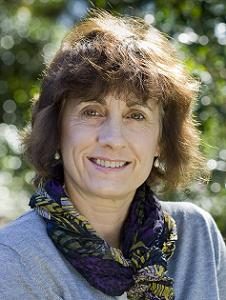
Understanding the observed and potential impacts of climate change on species and ecosystems is one of the most serious and challenging environmental issue we face. The main strength of my research in this area has been to integrate a number of different methods, from small-scale field and laboratory manipulations, to computer modeling of potential impacts on hundreds of species. This research interest has led to work focused on the implications of climate change on the applied issues of land management and conservation policy in Australia and elsewhere.
Science communication
My work with the Climate Commission, Climate Council and other bodies has led to a great interest in the way in which science, and in particular, climate change science, is communicated to the public and to policy makers, and how this might be improved.
A/Prof Jörg Buchholz
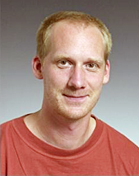
A/Prof Nathaniel Marshall
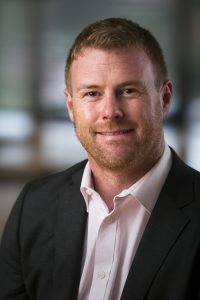 Nat Marshall is a mid-career clinical trialist and population-health epidemiologist specialising in sleep disorders. He is a University-employed Associate Professor at the Sydney Nursing School, University of Sydney and a Research Theme Leader at the Woolcock Institute for Medical Research. His PhD (2005) was in public health from Massey University in NZ followed by postdoctoral appointments at the Woolcock Institute (2005-2011). His major research focus is to quantify the health effects of sleep disorders and sleep loss and investigate new therapies.
Nat Marshall is a mid-career clinical trialist and population-health epidemiologist specialising in sleep disorders. He is a University-employed Associate Professor at the Sydney Nursing School, University of Sydney and a Research Theme Leader at the Woolcock Institute for Medical Research. His PhD (2005) was in public health from Massey University in NZ followed by postdoctoral appointments at the Woolcock Institute (2005-2011). His major research focus is to quantify the health effects of sleep disorders and sleep loss and investigate new therapies.
Prof Catherine McMahon

Prof David McAlpine

Prof Stephen Leeder
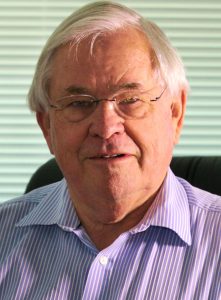
MD, PhD, DMedSc, FRACP, FFPH, FAFPHM, FRACGP (Hon)
Professor Stephen Leeder is the director of the Research and Education Network, Western Sydney Local Health District. He is also an emeritus Professor of Public Health and Community Medicine at the University of Sydney and editor-in-chief of the International Journal of Epidemiology. Professor Leeder’s academic career includes public health research, educational development and policy with research interests in asthma and cardiovascular disease. From 2011 to December 2016, Professor Leeder was chair of the Western Sydney Local Health District Board, from 1997 to 2003, dean of the Faculty of Medicine at the University of Sydney and, from 2004 to 2014 he directed the Menzies Centre for Health Policy, focusing on policy research for cost-effective, comprehensive prevention and care of chronic illnesses.
